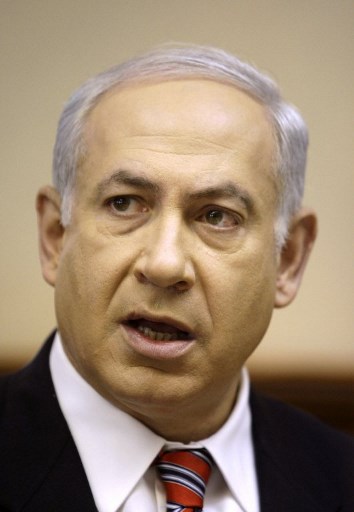
403
Sorry!!
Error! We're sorry, but the page you were looking for doesn't exist.
Netanyahu delays Middle East pact due to US election
(MENAFN) According to a report from CNN, the chances of the U.S. achieving a significant breakthrough in resolving the ongoing Middle East conflict before the November 5 presidential election appear slim. This situation is seen as a “serious political liability” for President Joe Biden and Democratic nominee Kamala Harris.
The backdrop of this political landscape includes Israel's recent military actions, where the country launched a series of strikes against Iranian military facilities. These strikes were a direct response to a missile barrage from Iran earlier in the month, which Iran justified by pointing to a series of targeted assassinations of senior Hezbollah officials, including their prominent leader, Hassan Nasrallah.
While the exchange of attacks did not escalate into an all-out war—an outcome viewed as the “worst-case scenario” for the Biden administration—the complexities surrounding the broader Middle East conflict remain unresolved. Unnamed officials who spoke to CNN indicated that discussions involving U.S., Israeli, and Qatari diplomats are set to take place in Doha. These talks aim to negotiate the release of hostages taken by the Hamas militant group and establish a ceasefire in Gaza.
However, U.S. officials believe that Israeli Prime Minister Benjamin Netanyahu is strategically delaying any serious decisions regarding these negotiations until he can assess the outcome of the U.S. presidential race. Reports suggest that Netanyahu is closely monitoring the election, as he views former President Donald Trump as a key ally. This alignment with Trump may influence Netanyahu’s approach to negotiations, further complicating the already intricate political dynamics in the region.
The situation highlights the interplay between U.S. domestic politics and Middle Eastern diplomacy, raising concerns about the prospects for peace as election season unfolds. As tensions continue to simmer, the outcomes of both the U.S. elections and the negotiations could significantly shape the future of the Middle East.
The backdrop of this political landscape includes Israel's recent military actions, where the country launched a series of strikes against Iranian military facilities. These strikes were a direct response to a missile barrage from Iran earlier in the month, which Iran justified by pointing to a series of targeted assassinations of senior Hezbollah officials, including their prominent leader, Hassan Nasrallah.
While the exchange of attacks did not escalate into an all-out war—an outcome viewed as the “worst-case scenario” for the Biden administration—the complexities surrounding the broader Middle East conflict remain unresolved. Unnamed officials who spoke to CNN indicated that discussions involving U.S., Israeli, and Qatari diplomats are set to take place in Doha. These talks aim to negotiate the release of hostages taken by the Hamas militant group and establish a ceasefire in Gaza.
However, U.S. officials believe that Israeli Prime Minister Benjamin Netanyahu is strategically delaying any serious decisions regarding these negotiations until he can assess the outcome of the U.S. presidential race. Reports suggest that Netanyahu is closely monitoring the election, as he views former President Donald Trump as a key ally. This alignment with Trump may influence Netanyahu’s approach to negotiations, further complicating the already intricate political dynamics in the region.
The situation highlights the interplay between U.S. domestic politics and Middle Eastern diplomacy, raising concerns about the prospects for peace as election season unfolds. As tensions continue to simmer, the outcomes of both the U.S. elections and the negotiations could significantly shape the future of the Middle East.

Legal Disclaimer:
MENAFN provides the
information “as is” without warranty of any kind. We do not accept
any responsibility or liability for the accuracy, content, images,
videos, licenses, completeness, legality, or reliability of the information
contained in this article. If you have any complaints or copyright
issues related to this article, kindly contact the provider above.






















Comments
No comment